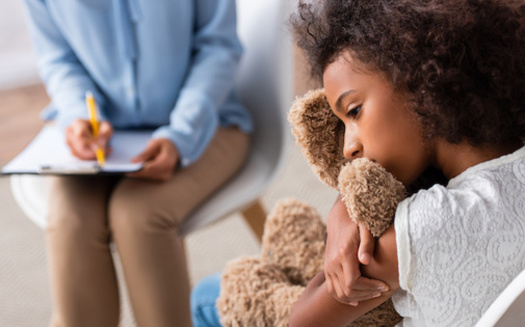By Nadia Ramlagan
Public News Service
Housing displacement and emotional trauma from natural disasters in the past year are likely worsening kids’ mental health in the Commonwealth, experts say, and new data from the Annie E. Casey Foundation’s Kids Count Data Book show the state already saw a 28% increase in children’s anxiety or depression between 2016 and 2020.
Dr. Terry Brooks, executive director of Kentucky Youth Advocates, pointed out that economic uncertainty and inflation place additional burdens on households trying to recoup from flooding and tornadoes.

The state where a child is born, in addition to family and community characteristics, ultimately affects their chance of thriving, according to research from the Annie E. Casey Foundation. (Photo from Adobe Stock, via PNS)
“The emerging data confirms what common sense has told us all along: It’s tough growing up,” Brooks said. “You add to growing up in the midst of pandemics, in the midst of natural disasters, and that’s a multiplier.”
More than 200,000 kids across the state still are living in poverty. The report ranks Kentucky 37th among states for overall child well-being.
Louisville psychologist Joseph Bargione said more than a half-million Kentucky kids who attend public schools have a diagnosed mental-health disorder. He said young people need support building resiliency skills, and time and space to express their feelings and have them validated.
“When we’re looking at elementary students,” Bargione said, “we’re seeing problems with attending or focusing, concentration, school avoidance issues, clinginess, aggression.”
He said middle- and high-school students often experience sleep disturbances, eating disorders, and agitation and anxiety.
Gerry Roll, executive director of the Foundation for Appalachian Kentucky, said now is the time for smart investments in Eastern Kentucky that can lay the foundation for strong communities and building new homes on land that is less prone to flooding.
“But I think what we’re going to do now,” Roll said, “is think about, ‘How do we build back in a way that creates more resilience?’”
The report said housing displacement and unaffordability also limit resources families have for other necessities such as food, health care and transportation.
